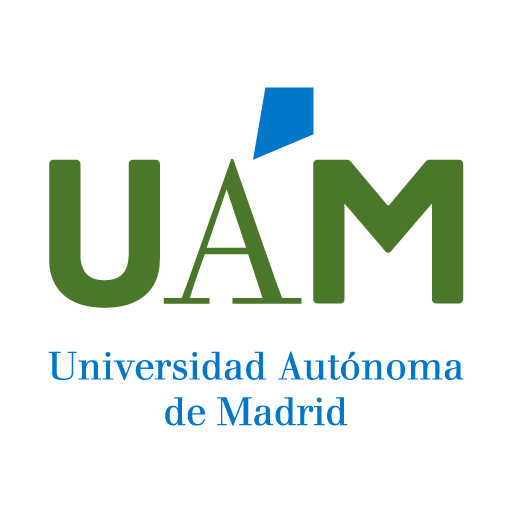Dr. Silvia Teresita Acuña




Last publications registered in ORCID :
Reliability of systematic literature reviews on test-driven development, 2025, Information and Software Technology. DOI: 10.1016/j.infsof.2025.107762
Relevant Information in TDD Experiment Reporting, 2025, ACM Transactions on Software Engineering and Methodology. DOI: 10.1145/3688837
Impact of Usability Mechanisms: A Family of Experiments on Efficiency, Effectiveness and User Satisfaction, 2023, IEEE Transactions on Software Engineering. DOI: 10.1109/tse.2022.3149586
Using the SOCIO Chatbot for UML Modelling: A Family of Experiments, 2023, IEEE Transactions on Software Engineering. DOI: 10.1109/tse.2022.3150720
Experimentation for Chatbot Usability Evaluation: A Secondary Study, 2022, IEEE Access. DOI: 10.1109/access.2022.3145323
Using the SOCIO Chatbot for UML Modeling: A Second Family of Experiments on Usability in Academic Settings, 2022, IEEE Access. DOI: 10.1109/access.2022.3228772
A HCI technique for improving requirements elicitation, 2012, Information and Software Technology. DOI: 10.1016/j.infsof.2012.07.011
A Systematic Mapping Study on the Open Source Software Development Process, 2012, 16th International Conference on Evaluation & Assessment in Software Engineering (EASE 2012)
Extension of Personas technique for the requirements stage, 2012, Communicability, Computer Graphics and Innovative Design for Interactive Systems. First International Symposium, CCGIDIS 2011. Revised Selected Papers. DOI: 10.1007/978-3-642-33760-4_8
How Does the Extraversion of Software Development Teams Influence Team Satisfaction and Software Quality? A Controlled Experiment, 2012, International Journal of Human Capital and Information Technology Professionals. DOI: 10.4018/jhcitp.2012100102
Formal model for assigning human resources to teams in software projects, 2011, Information and Software Technology. DOI: 10.1016/j.infsof.2010.11.011
Software Engineering Group Work - Personality, Patterns and Performance, 2010, Sigmis Cpr '10: Proceedings of the 2010 Acm Sigmis Computer Personnel Research Conference
How do personality, team processes and task characteristics relate to job satisfaction and software quality?, 2009, Information and Software Technology. DOI: 10.1016/j.infsof.2008.08.006
Empirical Study of How Personality, Team Processes and Task Characteristics Relate to Satisfaction and Software Quality, 2008, Esem'08: Proceedings of the 2008 Acm-Ieee International Symposium on Empirical Software Engineering and Measurement
Integrating the Personas Technique into the Requirements Analysis Activity, 2008, Ninth Mexican International Conference on Computer Science, Proceedings. DOI: 10.1109/enc.2008.40
Towards understanding the relationship between team climate and software quality - a quasi-experimental study, 2008, Empirical Software Engineering. DOI: 10.1007/s10664-008-9074-8
Emphasizing human capabilities in software development, 2006, Ieee Software. DOI: 10.1109/ms.2006.47
Formalising human competencies in the software process, 2005, CC-AI, The Journal for the Integrated Study of Artificial Intelligence, Cognitive Science and Applied Epistemology
Software process modelling: A preface, 2005, Software Process Modeling
Assigning people to roles in software projects, 2004, Software-Practice & Experience. DOI: 10.1002/spe.586
Human capacities in the software process: Empiric validation, 2002, Icse 2002: Proceedings of the 24th International Conference on Software Engineering
Integral software process modeled with objects and workflows: Static and dynamic view, 2002, 6th World Multiconference on Systemics, Cybernetics and Informatics, Vol Viii, Proceedings
Software engineering and knowledge engineering, 2002, Expert Systems With Applications. DOI: 10.1016/s0957-4174(02)00069-6
A culture-centered multilevel software process cycle model, 2001, World Multiconference on Systemics, Cybernetics and Informatics, Vol 1, Proceedings
Capacities-centered software engineering and knowledge engineering software process, 2001, World Multiconference on Systemics, Cybernetics and Informatics, Vol 1, Proceedings
Culture-centered software process: object-oriented modeling of the human capacities, 2001, CC-AI, The Journal for the Integrated Study of Artificial Intelligence, Cognitive Science and Applied Epistemology
Empiric validation of the person to role allocation process, 2001, Sccc 2001: Xxi International Conference of the Chilean Computer Science Society, Proceedings. DOI: 10.1109/sccc.2001.972645
Software process modelling, 2001, World Multiconference on Systemics, Cybernetics and Informatics, Vol 1, Proceedings
A culture-centered multilevel software process cycle model, 2000, Proceedings of the 2000 International Conference on Software Engineering. ICSE 2000 the New Millennium. DOI: 10.1109/icse.2000.870496
An integral software process formal model based on the SOCCA approach, 2000, Xx International Conference of the Chilean Computer Science Society - Proceedings
Capacities-centered integral software process formalization, 2000, Xx International Conference of the Chilean Computer Science Society - Proceedings
Knowledge and software engineering: a methodological framework to symbiotic software process modeling, 2000, CC-AI, The Journal for the Integrated Study of Artificial Intelligence, Cognitive Science and Applied Epistemology
A process model applicable to software engineering and knowledge engineering, 1999, International Journal of Software Engineering and Knowledge Engineering. DOI: 10.1142/s0218194099000358
Methodological proposal for modelling and implementing regulation application problems in a knowledge-based system, 1999, Agricultural Systems. DOI: 10.1016/s0308-521x(99)00016-5
The socio-cultural environment in the software process modeling, 1999, Proceedings. SCCC'99 XIX International Conference of the Chilean Computer Science Society. DOI: 10.1109/sccc.1999.810192
Knowledge-based system for generating administrative grant alternatives applying the IDEAL methodology, 1997, Computers and Electronics in Agriculture. DOI: 10.1016/s0168-1699(97)00015-x
Software process model for KBS development, 1996, CC-AI, The Journal for the Integrated Study of Artificial Intelligence, Cognitive Science and Applied Epistemology
